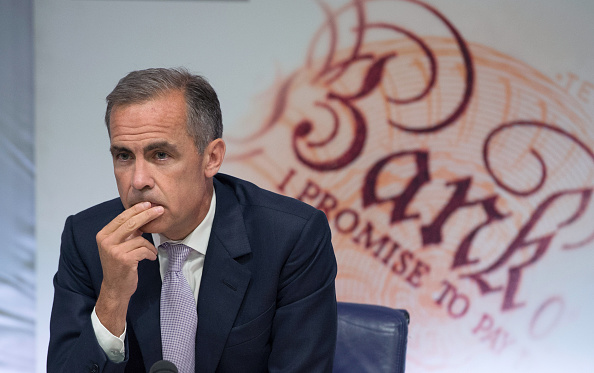Why the Bank of England will buck the trend and hold interest rates

The US Federal Reserve and European Central Bank (ECB) both slashed interest rates at their last meetings, citing trade wars and stubborn inflation respectively.
With the UK economy in contraction – it shrank 0.2 per cent in the second quarter – and inflation falling in August, there is a case for the Bank of England to copy its counterparts and lower rates.
Read more: Into the red: UK economy contracts in second quarter under Brexit pressure
But for Threadneedle Street, Brexit trumps all else, City A.M.’s shadow monetary policy committee (MPC) has said. Our board of top economists voted eight to one to keep rates on hold.
With the clouds of political uncertainty hanging over the UK economy, they said, Britain’s central bank should keep its main interest rate on hold at 0.75 per cent until the picture clears up.
What City A.M.’s shadow MPC decided
Guest Chair: Ruth Gregory – Capital Economics
Hold
It is normal for the UK to follow the global trend – particularly the US – but the economic conditions in the UK don’t warrant lower interest rates. Pay growth has reached its highest since 2008. Inflation expectations have been rising. And the different starting points of the UK and US economies mean that rates won’t necessarily fall in tandem. So if there is a Brexit deal or a long delay, the UK could raise rates. If there’s a no deal, the UK could follow the US in cutting rates – but for very different reasons.
Erik Norland – CME Group
Hold
In my view, the MPC should keep rates on hold. Inflation is close to target. Brexit is still up in the air. Growth is slowing but not alarmingly so. As such, no reason to change policy just yet.
Simon Ward – Janus Henderson
Cut
Monetary trends and business surveys are weaker than in most other major economies, and inflation is below target, yet the MPC stands pat as other central banks ease – why?
Read more: Cheaper computer games push inflation to three-year low
Vicky Pryce – CEBR
Hold
Inflation is below target, business and consumer confidence remains fragile on Brexit fears. The world trade environment shows little sign of improving and UK forecasts for 2019 have been downgraded again.
Tej Parikh – Institute of Directors
Hold
It’s best to look through the inflationary pressures from wage growth and the oil spike for now given global headwinds, ongoing weakness in the economy, and the lurking possibility of a disorderly Brexit.
Peter Dixon – Commerzbank
Hold
Domestic data suggest that the case for a rate hike is not completely dead (strong wage inflation, robust GDP) but Brexit-related uncertainty makes an overwhelming case to keep rates on hold.
Frances Haque – Santander
Hold
Rushing to cut rates now would leave less room to manoeuvre if there’s a no-deal Brexit. The Bank should keep its ammunition in reserve until the Brexit outcome is known.
Mike Bell – JP Morgan Asset Management
Hold
With wage growth at four per cent but business surveys highlighting the downside risks to the UK and global economy, rates should remain on hold.
Read more: Mark Carney says negative rates ‘not an option’ for BoE
Jeavon Lolay – Lloyds Bank
Hold
Brexit uncertainty and slower global growth are weighing on UK activity. While recent data points to underlying resilience, there is a strong case for waiting before altering the monetary policy stance.